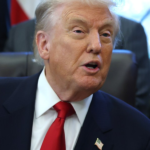Mason sees global reach as a lasting advantage. Even as supply chains shift amid geopolitical tensions, he believes multinationals will still need cross-border support. “I don’t see large multinationals retrenching and becoming much more insular,” he said. Citi’s model, he added, is built on adaptability—recognizing that while markets evolve, global connectivity remains essential.
That principle extends to technology. Citi has made major strides in improving data quality, risk controls, and regulatory reporting, part of a broader modernization effort led by process discipline and strong internal leadership, Mason said.
AI now sits at the center of that work. Every Citi business has identified five AI use cases to develop, Mason said, fostering collaboration across teams and improving data governance. Once a week, teams meet to share progress, review risks, and discuss learnings. “In the planning process, risk plays a significant role,” he said. “They’re involved in the macroeconomic variables we use, and we always conduct stress testing as part of planning.”
Still, he is cautious. Dual processes and human oversight remain in place for critical tasks like financial reporting. “I’m excited about the use of AI in finance—but cautious,” Mason said. “Robust controls and subject matter expertise are essential.”
As for returns on AI investment, Mason said the payoff varies. Some use cases help identify new revenue opportunities; others reduce costs by automating manual work. “Some aspects help drive revenue, others free up time or eliminate manual activity,” he said.
Mason oversees a global finance team of nearly 10,000 people but is deeply involved in Citi’s broader transformation strategy.
“One of the things I love about being a CFO is that you have a license to stick your head anywhere you’d like,” he quipped. “But it’s important to understand what’s going on because, ultimately, it’s going to impact the numbers, require investment, or generate returns.”









